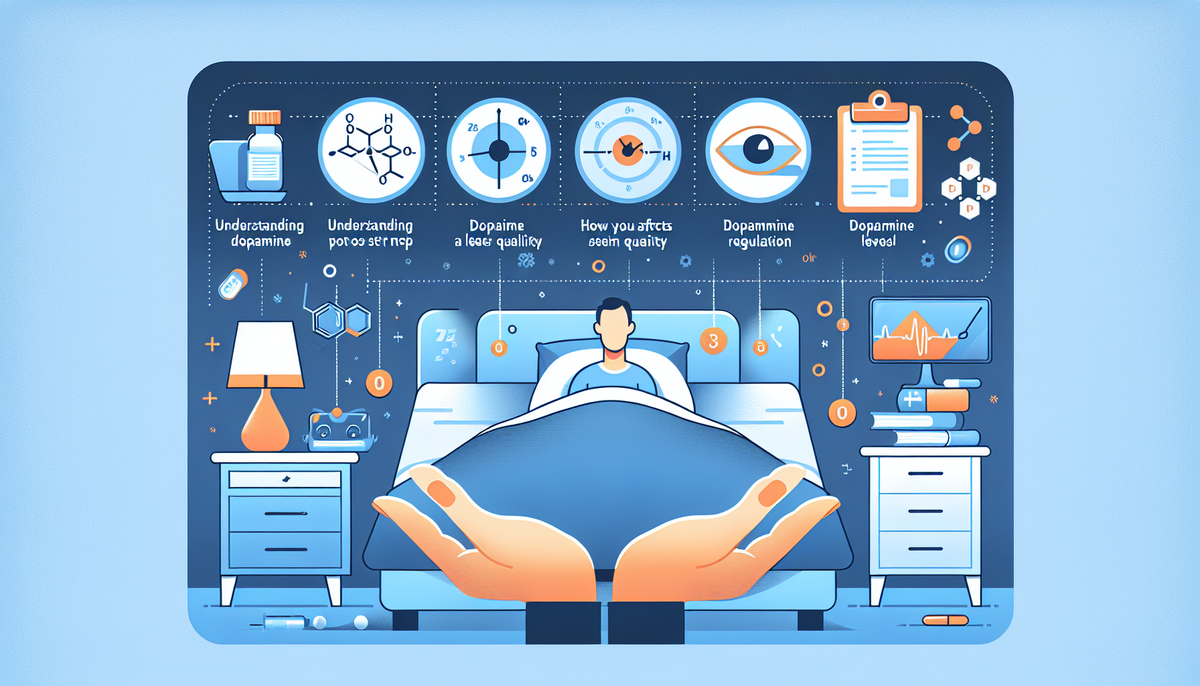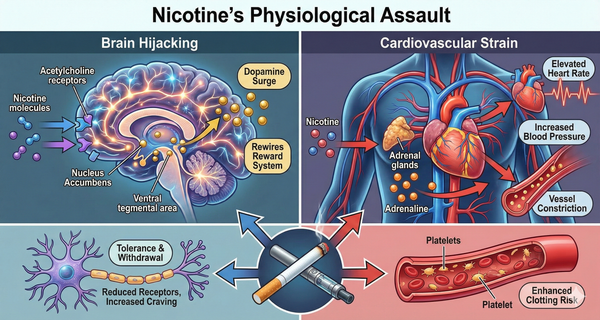The Connection Between Sleep Quality and Dopamine Levels

What is Dopamine and Why is it Important?
Dopamine is a neurotransmitter, a chemical messenger in the brain that plays a multifaceted role in our daily lives. Often called the “feel-good” chemical, its function extends far beyond pleasure and reward. It is fundamentally linked to motivation, focus, and motor control. Understanding dopamine is the first step in appreciating its intricate connection with our sleep. Dopamine signaling is a core component of the brain's reward system, which drives us to seek out rewarding stimuli. It also plays a crucial part in regulating our internal body clock, known as the circadian rhythm, which governs our sleep-wake cycle.
The Molecule of Motivation
At its core, dopamine is the molecule of motivation. It is released in the brain when we anticipate a reward, which in turn drives us to take action. This applies to everything from satisfying a food craving to completing a major project. When dopamine levels are balanced, we feel driven, focused, and engaged. However, when this system is disrupted, it can lead to procrastination, apathy, and an inability to concentrate—symptoms often experienced after a night of poor sleep.
Dopamine's Role in the Sleep-Wake Cycle
Sleep science has revealed that dopamine levels naturally fluctuate throughout the day. They are typically highest in the morning to promote wakefulness and alertness, and they gradually decrease as the evening approaches, signaling to the body that it's time to sleep. This rhythm is essential for maintaining a healthy sleep-wake cycle. Any interference with this natural ebb and flow can lead to difficulties falling asleep or waking up.
The Impact of Poor Sleep on Dopamine Levels
Sleep deprivation has a significant and direct impact on the dopamine system. When you don't get enough quality sleep, your brain's ability to produce and use dopamine a is compromised. This is a primary reason why a lack of sleep often results in fatigue, reduced motivation, and mood swings. The brain tries to compensate for the lack of sleep by altering its dopamine signaling, which can have cascading negative effects.
Dopamine Receptor Sensitivity
One of the most critical consequences of poor sleep is a reduction in the sensitivity of dopamine receptors, specifically the D2 receptors. Research has shown that even a single night of sleep deprivation can lead to a noticeable decrease in the availability of these receptors. This means that even if your brain is producing enough dopamine, the receptors are less effective at binding to it, dampening its effects. This can make you feel less pleasure from normally enjoyable activities and significantly lower your motivation.
Disruption of Circadian Rhythms
Lack of sleep throws your circadian rhythm out of sync. This disruption affects the natural daily cycle of dopamine release. Your brain may not produce enough dopamine in the morning, leading to grogginess and difficulty concentrating. Conversely, dopamine levels might not decrease sufficiently at night, contributing to a state of hyperarousal that makes it challenging to fall asleep, creating a vicious cycle of poor sleep and imbalanced dopamine.
How Dopamine Levels Affect Sleep Quality
The relationship between dopamine and sleep is a two-way street. Just as sleep impacts dopamine, the state of your dopamine system can significantly affect your ability to get a good night's rest. Both excessively high and low levels of dopamine can be problematic for sleep, contributing to various sleep-related issues and disorders.
Dopamine and Restless Legs Syndrome (RLS)
Restless Legs Syndrome (RLS) is a condition characterized by an overwhelming urge to move the legs, particularly during periods of rest or inactivity like nighttime. This disorder is strongly linked to a dysfunction in the brain's dopamine system. It is believed that low dopamine levels in certain parts of the brain contribute to the uncomfortable sensations and involuntary movements associated with RLS, severely disrupting sleep quality.
Hyperarousal and Insomnia
On the other end of the spectrum, elevated dopamine levels at night can lead to a state of hyperarousal, making it difficult to wind down and fall asleep. This can be caused by various factors, including stress, late-night exposure to stimulating activities (like using electronic devices), or certain medications. This state of heightened alertness is a common feature of insomnia, where the mind races and the body refuses to relax.
Strategies for Better Sleep and Balanced Dopamine
Given the cyclical nature of sleep and dopamine, improving one can have a positive effect on the other. By implementing targeted strategies, you can enhance your sleep quality, which in turn helps regulate your dopamine levels, leading to better mood, motivation, and overall health. Here are some effective, science-backed methods to achieve better sleep and balanced dopamine.
Optimizing Your Sleep Environment
Creating a sleep sanctuary is fundamental. Your bedroom should be dark, quiet, and cool. Use blackout curtains, earplugs, or a white noise machine if needed. Most importantly, reserve your bed for sleep and intimacy only. This helps your brain create a powerful association between your bed and rest, making it easier to fall asleep.
Nutritional Tips for Dopamine Production
Your diet plays a key role in neurotransmitter production. To support healthy dopamine levels, ensure you are consuming enough protein-rich foods that contain L-tyrosine, the amino acid precursor to dopamine. These include chicken, almonds, avocados, and bananas. Additionally, antioxidants found in fruits and vegetables protect dopamine-producing neurons from damage.
The Role of Exercise and Sunlight
Regular physical activity is a potent tool for improving both sleep and dopamine function. Exercise has been shown to boost dopamine levels and improve receptor sensitivity. Similarly, getting exposure to natural sunlight, especially in the morning, helps to set your circadian rhythm and supports the natural morning surge in dopamine, promoting wakefulness and a more stable mood throughout the day.
Conclusion
The connection between sleep quality and dopamine levels is a profound and bidirectional one. Quality sleep is essential for maintaining healthy dopamine function, which in turn governs our motivation, mood, and ability to sleep well. When this cycle is disrupted, it can lead to a cascade of negative effects that impact both our mental and physical health. By understanding this relationship and implementing practical strategies to prioritize better sleep, you can foster a well-balanced dopamine system, leading to a more energized, focused, and fulfilling life. Prioritizing your sleep is one of the most effective actions you can take for a healthier brain and a happier you.




